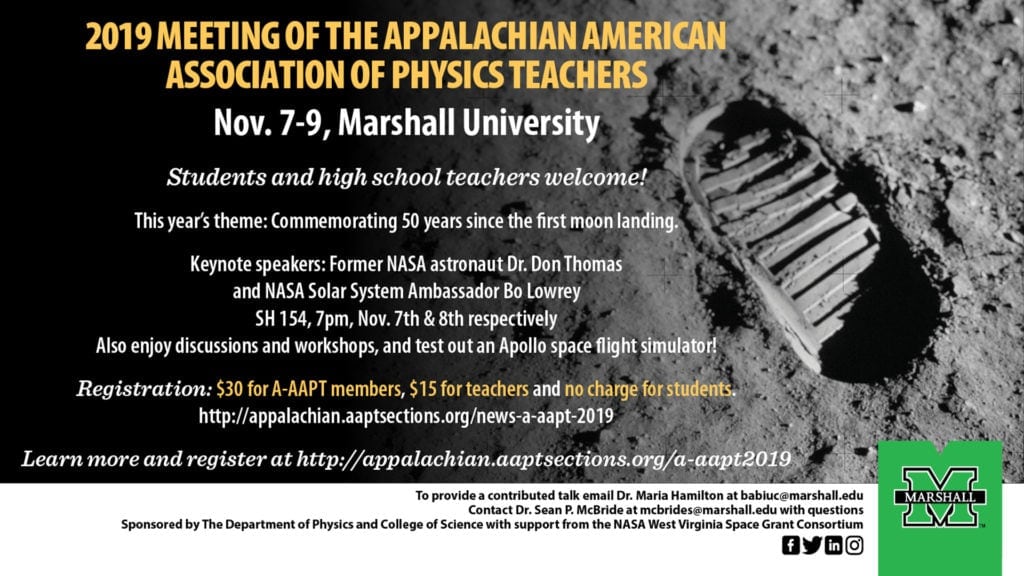Marshall University will host the 2019 Meeting of the Appalachian American Association of Physics Teachers (A-AAPT 2019) Thursday-Saturday, Nov. 7-9, on the Huntington campus. It is open to students and high school teachers from throughout the region.
This year’s meeting will commemorate the 50th anniversary of the first moon landing. Dr. Don Thomas, former NASA astronaut and a veteran of four Space Shuttle missions, will be the public keynote speaker for the conference. Thomas’ talk starts at 7 p.m. Thursday, Nov. 7, in Room 154 of Smith Hall and is free and open to the public. A reception will follow in the Birke Art Gallery Atrium, with the Birke Art Gallery in Smith Hall holding special hours of 6 to 9 p.m. for the event.
Bo Lowrey, a NASA solar system ambassador, will also provide a free talk open to the public as part of the A-AAPT conference. He will speak at 7 p.m. Friday, Nov. 8, in Room 154 of Smith Hall.
The meeting also will include talks and workshops presented by local educators from surrounding high schools and universities. Participants in the workshops will have the opportunity to test out an Apollo space flight simulator and experience forces, momentum, orbital mechanics, thermodynamics and fluid mechanics of space flight. They will also learn about the Pulsar Search Collaboratory, an out-of-school-time citizen science project for students age 13 and up.
This celebratory meeting aims to be both engaging and instructive, inspiring people to learn more about space, said Dr. Maria Hamilton, professor of physics at Marshall and an event organizer.
Registration for these conference talks and workshops will be $30 for A-AAPT members, $15 for teachers, and no charge for students. Dinner on Nov. 8 and lunch on Nov. 9 will be included for registered participants.
Register or find more information at http://appalachian.aaptsections.org/a-aapt2019/. With questions, contact organizers Hamilton (babiuc@marshall.edu) and Dr. Sean P. McBride (mcbrides@marshall.edu), Department of Physics, Marshall University.
The event is sponsored by the Department of Physics and College of Science at Marshall University along with the NASA West Virginia Space Grant Consortium.













